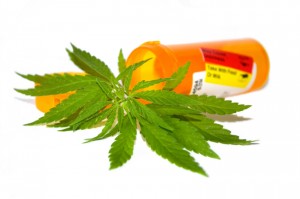 I see Massachusetts Senator Elizabeth Warren has asked the CDC to research ways in which medical and recreational marijuana might help alleviate the opioid epidemic. The idea is that pot might replace opioids and thereby reduce fatalities.
I see Massachusetts Senator Elizabeth Warren has asked the CDC to research ways in which medical and recreational marijuana might help alleviate the opioid epidemic. The idea is that pot might replace opioids and thereby reduce fatalities.
I like Senator Warren but for her thoughts on protecting us from consumer fraud, not her expertise in addictions. It’s time for my usual disclaimer: Nothing personal against marijuana, smoked it myself in my teens and early 20’s, had no particular problem. It’s true that the vast majority of addicts I’ve worked with have smoked pot and seemed not at all concerned by whether it was legal. Some of them probably wouldn’t be deterred by the threat of capital punishment. I know that pot smoking is incredibly widespread. It’s to the point where I’m surprised to meet someone below a certain age who hasn’t smoked it.
No, my problem is a growing suspicion that we’re laying the groundwork for a future epidemic of cannabis disorders.
On what do I base that? Well, for one, the anecdotal evidence: how often it shows up in drug histories of people seeking treatment for addiction. Marijuana has long been ultra-popular as a ‘number two’ substance among alcohol and opioid and heroin and cocaine and amphetamine addicts. But now it seems to show up quite frequently as the primary substance motivating treatment– particularly among younger users.
The research points the same way. Bridget Grant and colleagues examined data from two very large face-to-face surveys of adult Americans– 80,000 in total– and found that reports of marijuana use more than doubled during the first decade of this century. Not surprisingly, reports of cannabis disorders skyrocketed as well.
A brief explanation: Face-to-face research is preferred over online and phone surveys due to greater accuracy and completeness. There’s little opportunity for falsification and the interviewer can pick up on behavioral cues. But such studies are usually small because they’re costly. These two are remarkable for their sheer size.
About a third of people who report using marijuana will meet criteria for a Cannabis Use Disorder– an estimated 7 million American adults. That number is closer to alcohol or tobacco than heroin or coke. Cannabis Use Disorders (CUD) can be quite disruptive to the lives of those who suffer from them, even though fatalities are not a prominent concern.
If my guess is correct, and only time will tell, the recent explosion in cannabis use will generate the appearance of more potent forms of the drug. That will include enhanced new strains (already in development), or greater popularity for the ‘synthetics’ that aren’t really marijuana at all, but plant material treated with related chemicals. That can boost the OD risk, as happened here:
Nearly 120 People Overdose on Synthetic Marijuana in 5-Day Period
A closing thought: why is it that we insist on treating drug addiction with still more drugs? I sincerely hope it’s not just because people see it as an opportunity to get rich. Then again, I suppose that would be the American Way….










